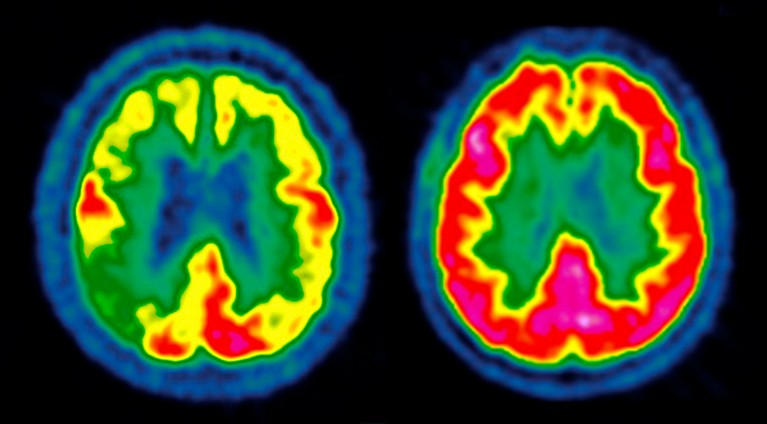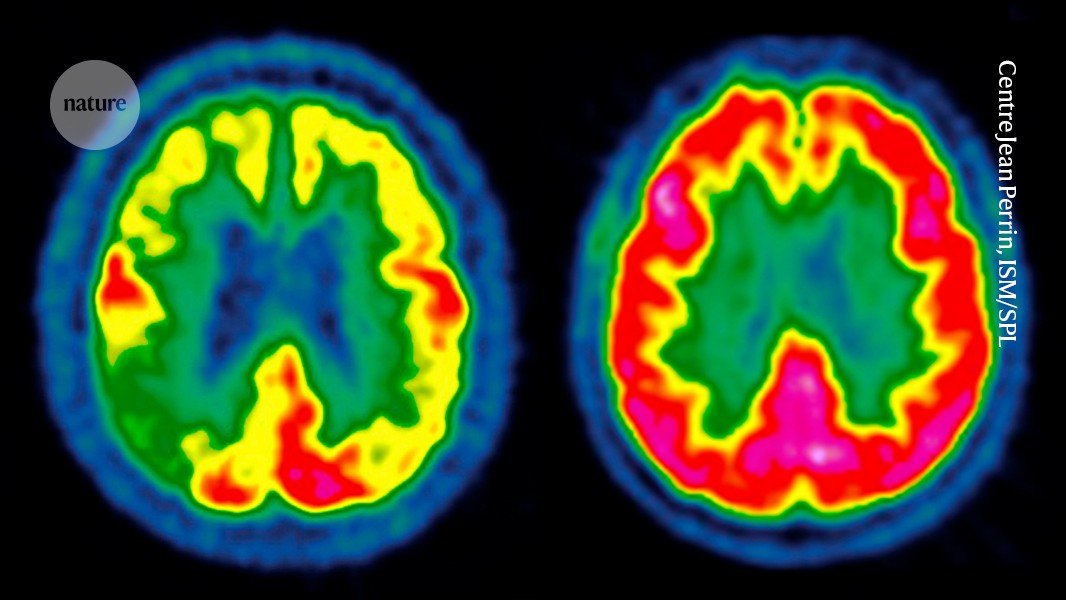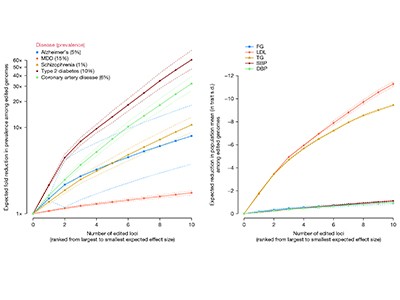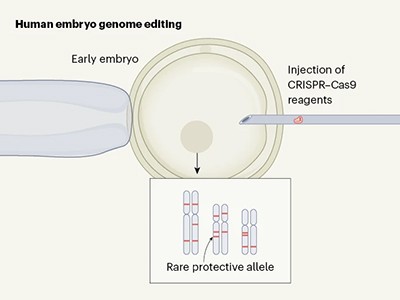
Human genome editing could markedly reduce the likelihood of Alzheimer’s disease. The brain scan on the left is of someone with Alzheimer’s disease; the one on the right is of a ‘typical’ brain.Credit: Centre Jean Perrin, ISM/Science Photo Library
Scientists know about tens of thousands of DNA variants that are associated with human diseases. On their own, the vast majority of these variants have small effects. But taken together, the result can be substantial. The effects of modifying multiple variants at once, known as polygenic genome editing, is the subject of an analysis published this week in Nature (P. M. Visscher et al. Nature https://doi.org/10.1038/s41586-024-08300-4; 2025).
Read the paper: Heritable polygenic editing as a potential frontier in genomic medicine
The study reveals that polygenic genome editing in human embryos could substantially reduce the likelihood of certain diseases occurring, but it raises concerns, not least the renewed threat of eugenics. There are other caveats too, the researchers report. Nature is publishing this work because it is important to start a conversation about what could happen if more-sophisticated gene-editing technologies become available, which could be the case within 30 years, the authors say. Societies need to consider relevant benefits and risks before that day comes.
Peter Visscher, a statistician and geneticist at the University of Queensland, Australia, and his colleagues modelled the consequences of simultaneously editing specific variants linked to a number of diseases, including Alzheimer’s disease, schizophrenia, type 2 diabetes, coronary artery disease and major depressive disorder (MDD).
Gene-editing tools currently in development, called multiplex technologies, are projected in the coming decades to enable rapid precision DNA editing at tens, or even hundreds, of locations. The researchers found that, in some cases, editing a single variant associated with a polygenic disease can have strong effects, and, with the exception of MDD, editing up to ten genes associated with a disease can reduce its lifetime prevalence by an order of magnitude.
Human embryo editing against disease is unsafe and unproven — despite rosy predictions
This would be a huge achievement. However, the authors also include an extensive discussion of the study’s limitations and challenges. The fear that polygenic gene editing could be used for eugenics looms large among them, and is, in part, why no country currently allows genome editing in a human embryo, even for single variants.
There are also significant technical caveats. The authors say that polygenic editing is unlikely to benefit the wider population in any realistic timeframe, because the technology is available only through in vitro fertilization. There are also not yet enough known causal variants for common diseases. Other limitations to the findings include the fact that many diseases are also caused by non-genetic factors, which are harder to model. Furthermore, a successful new treatment for one of the diseases is likely to reduce the need for human genome editing. There are also pleiotropic effects to consider: a gene variant that is a risk factor for one disease could offer protection against another. And then there’s the risk that these technologies will widen inequality and social divisions, because the costs will probably be substantial. These issues need society-wide discussion.
The past few decades have shown that new technologies are being developed ahead of conversations on their ethics or social and environmental impacts. From the atomic bomb to artificial intelligence, discussions of risks, benefits, safety, regulation and transparency have had to play catch-up. As recently as 2018, biophysicist He Jiankui shocked the world by announcing that he’d created genetically edited babies. The mistake should not be repeated.
Although it will be some decades before human-gene-editing science and technologies can be applied with precision and at scale, they are on their way; this is not a hypothetical issue. The intervening time should be used wisely. Societies need to be ready, understand the upsides and the dangers, and know what to do when that time comes.




